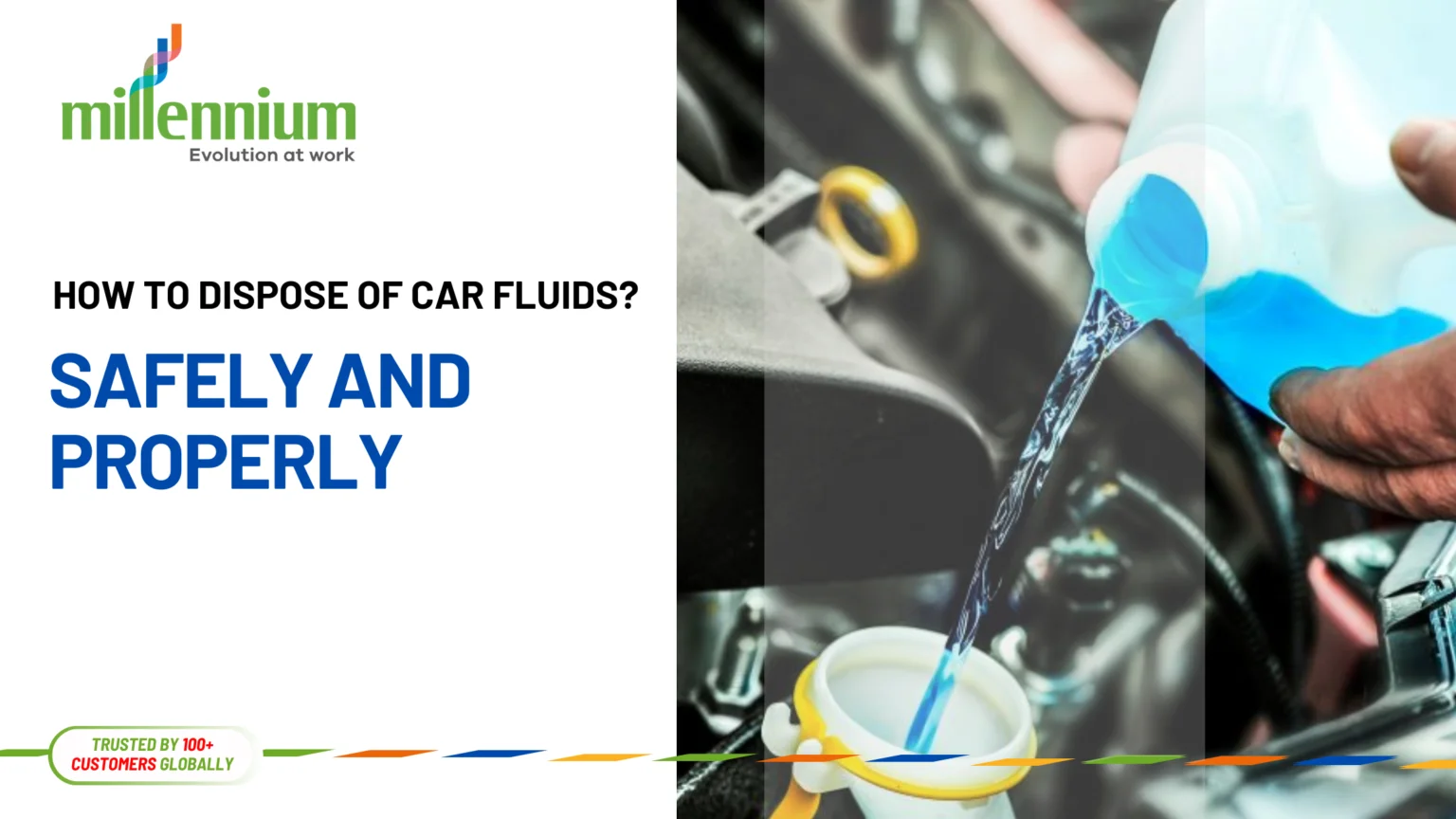How to Dispose of Car Fluids Safely and Properly
Maintaining your vehicle often involves changing various fluids, from engine oil to coolant. While these fluids are essential to keep...

Maintaining your vehicle often involves changing various fluids, from engine oil to coolant. While these fluids are essential to keep your car running smoothly, improper disposal can pose serious environmental and health hazards. Disposing of automotive fluids responsibly is not just a legal obligation—it’s also a critical step in protecting the environment, public health, and water sources.
In this article, we explore why safe disposal matters, and how to dispose of car fluids , outline which car fluids require proper handling, and provide steps, tips, and alternatives to help you manage used automotive fluids in an eco-friendly way.
Why Proper Disposal of Car Fluids is Important
Car fluids contain hazardous chemicals, heavy metals, and other toxic substances that can contaminate soil and groundwater if dumped carelessly. One gallon of used motor oil can pollute up to a million gallons of water. Similarly, antifreeze and brake fluids are highly toxic to humans, pets, and wildlife.
Improper disposal can lead to:
- Environmental pollution
- Groundwater contamination
- Health risks to humans and animals
- Legal penalties for violating environmental laws
By disposing of automotive fluids properly, you help ensure a cleaner, safer environment and support efforts to reduce hazardous waste in landfills and natural ecosystems.
Common Types of Car Fluids That Need Proper Disposal
Several automotive fluids should never be poured down the drain, dumped on the ground, or thrown in the trash. Here are the most common:
1. Motor Oil
Used engine oil contains impurities, including heavy metals and combustion byproducts, making it one of the most polluting car fluids.
2. Transmission Fluid
This hydraulic fluid is flammable and contains additives that are harmful to the environment.
3. Coolant/Antifreeze
Ethylene glycol-based coolants are sweet-smelling but toxic, especially to pets and wildlife. Propylene glycol alternatives are safer but still require careful disposal.
4. Brake Fluid
Containing glycol ethers and other harmful chemicals, brake fluid can be highly toxic and must be treated as hazardous waste.
5. Power Steering Fluid
This fluid is similar to transmission fluid and can also be flammable and toxic if mishandled.
6. Windshield Washer Fluid
While generally less hazardous, it contains methanol and should not be poured into storm drains or open ground.
7. Gear Oil and Differential Fluids
These are often thick and smelly, containing sulfur-based compounds that are harmful to soil and water.
Steps to Dispose of Car Fluids Properly
Handling car fluids properly begins with collection and ends with delivery to an authorized recycling or disposal facility. Follow these key steps:
Step 1: Use the Right Containers
Collect fluids in clean, leak-proof containers with tight-fitting lids. Do not mix different fluids, as this can make recycling impossible. Clearly label each container to avoid confusion.
Step 2: Transport Safely
Place containers upright in a sturdy box or tray to prevent spills during transport. Avoid storing them near food or household items.
Step 3: Take to an Authorized Disposal or Recycling Center
Most communities have designated auto parts stores, service stations, or municipal waste facilities that accept used fluids. Look for:
- Local hazardous waste collection events
- Auto shops that accept used oil or fluids for free
- Recycling centers registered to handle automotive waste
Step 4: Keep Records (If Required)
In some regions or for commercial facilities, documentation of waste disposal may be required. Keep receipts or records for future reference.
Tips for Safe Handling of Car Fluids
Before, during, and after fluid changes, safety should be your top priority. Follow these tips:
- Wear protective gear: Gloves, goggles, and long sleeves protect against splashes and contact with skin.
- Avoid inhalation: Work in a well-ventilated area to minimize exposure to harmful fumes.
- Prevent spills: Use drain pans and funnels to reduce the risk of leaks.
- Clean up immediately: Use absorbent pads, kitty litter, or sand to contain and clean spills, then dispose of waste material properly.
- Store away from children and pets: Fluids like antifreeze are particularly dangerous if ingested.
Alternatives to Disposal: Reuse and Recycling
Where possible, consider reuse or recycling before disposal:
1. Recycled Motor Oil
Used motor oil can be refined into new lubricants or reprocessed as fuel for industrial burners.
2. Coolant Recycling
Some auto shops can filter and rebalance used coolant for reuse, saving costs and reducing waste.
3. Brake and Power Steering Fluid
Though not typically reused in vehicles, some specialized recycling centers may accept and process these fluids.
4. Windshield Washer Fluid
Unused washer fluid that’s still clean can be reused or stored for later use. Never mix with used fluids.
By embracing recycling, you help conserve natural resources and reduce environmental damage. Always confirm that any reuse is safe and does not compromise your vehicle’s performance or safety.
Conclusion
Proper disposal of car fluids is an essential part of responsible vehicle maintenance. These substances, if mishandled, can pose serious threats to the environment and public health. Thankfully, with the right containers, local drop-off facilities, and a bit of preparation, disposing of used fluids can be safe, simple, and sustainable.
Remember—whether you’re a DIY mechanic or simply changing your car’s oil at home, your efforts to handle and dispose of automotive fluids correctly contribute to a healthier planet. Choose to recycle and dispose responsibly—because every drop counts.




